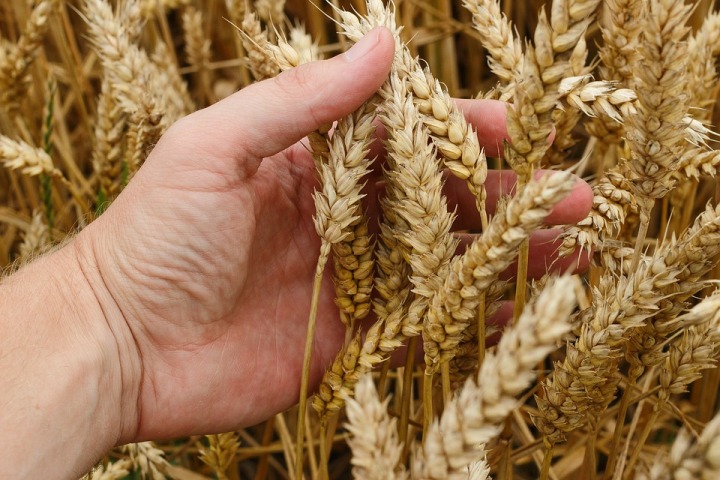FAO helps improve farmers’ access to high-quality seeds in Tajikistan
To ensure that small-scale farmers can produce high-quality seeds, meeting all requirements, the project provided seed cleaning machines for them.

- Country:
- Tajikistan
Wheat has a long history in Tajikistan; it has been grown for more than thousands years. The crop plays a crucial role in people’s wellbeing, particularly in rural areas.
With a workshop today in Dushanbe, an effort to improve small-scale farmers’ access to high-quality seeds concludes. It was implemented by the Food and Agriculture Organization of the United Nations (FAO) and funded by Austria. This project, launched in 2012, was supported by the Ministry of Agriculture and the Seed Association of Tajikistan.
Participants of the event were representatives of the Ministry of Agriculture, Tajik Academy of Agricultural Sciences, Agrarian University of Tajikistan, Seed Association of Tajikistan, the Cooperative “Sarob”, as well beneficiary farmers. During the event, they have shared information on the challenges and lessons learned, but also on positive experiences, success stories, and goals achieved
“The project was very timely, and successfully combined distribution of practical and theoretical assistance,” said Oleg Guchgeldiyev, FAO Representative in Tajikistan. “It did not only distribute seeds of wheat and other crops, and equipment for seed cleaning but provided also training to farmers on how to produce high-quality seeds by themselves.”
In Tajikistan, almost all wheat produced is used for making bread and other food. Therefore it is a highly respected staple grain for Tajik people. There are various types of bread with different shapes and ingredients, for example, girdacha, fatir, kulcha, chapoti, and others. Besides wheat, Tajik farmers grow other crops, such as pulses, oilseeds, forage crops, and rice.
From 2012 to 2018, the project has distributed more than 400 tons of high-quality wheat seeds and almost 15 tons of seeds of alternative crops. Most importantly the project established a strong partnership among seed producers and seed users through the demonstration of new, superior wheat varieties. New wheat varieties (Murodi, Durakhshon, Kamol, Sarvar, Yusufi, Vakhdat) were released, additional seven is being tested by official authorities at multiple locations.
In total, some 2800 and 4000 farmers beneficiaries in fifteen districts of Tajikistan, including districts of the Khatlon and Sughd regions, and Rasht and Hisor valleys benefited, directly and indirectly, this project. The project included a number of activities such as training for farmers and seed specialists, distribution of equipment, wheat breeding and maintenance activities, producing publications and extension services materials, and developing policies and strategies.
To ensure that small-scale farmers can produce high-quality seeds, meeting all requirements, the project provided seed cleaning machines for them.
“This is a very important element for long-term sustainability, and to avoid farmers’ dependency on project and donor support,” Guchgeldiyev added.
“Small-scale farmers have now improved skill to produce quality seeds, and, as a result, farmers realized that planting quality seeds results in increasing yields. In this regard, the project team convinced farmers that the quality seed cost more, but it pays off,” said FAO agricultural officer Hafiz Muminjanov.
“The project significantly supported the national wheat breeding programme, especially the promotion of new superior varieties in the farmers’ fields. Currently, Tajik farmers are growing more local wheat varieties, which is encouraging,” Muminjanov continued.
Access to high-quality seeds of superior wheat varieties and other crops can ensure employment opportunities and income generation, and, ultimately, contribute to improved food safety and livelihood of small-scale farmers living in rural areas of Tajikistan.
ALSO READ
Congress failed to address concerns of small tea farmers: Union Minister Sarbananda Sonowal
Health News Roundup: Bird flu pushes US dairy farmers to ban visitors, chop trees; Vertex Pharma bets on kidney disease treatment with $4.9 billion Alpine Immune deal and more
Farmers asking for MSP, youngsters want jobs, but no one listening: Rahul
Won't tolerate attempts to give farmers raw deal in paddy purchase: T'gana CM
Family-oriented parties can never work for welfare of poor, Dalits, farmers, tribals: Shah










